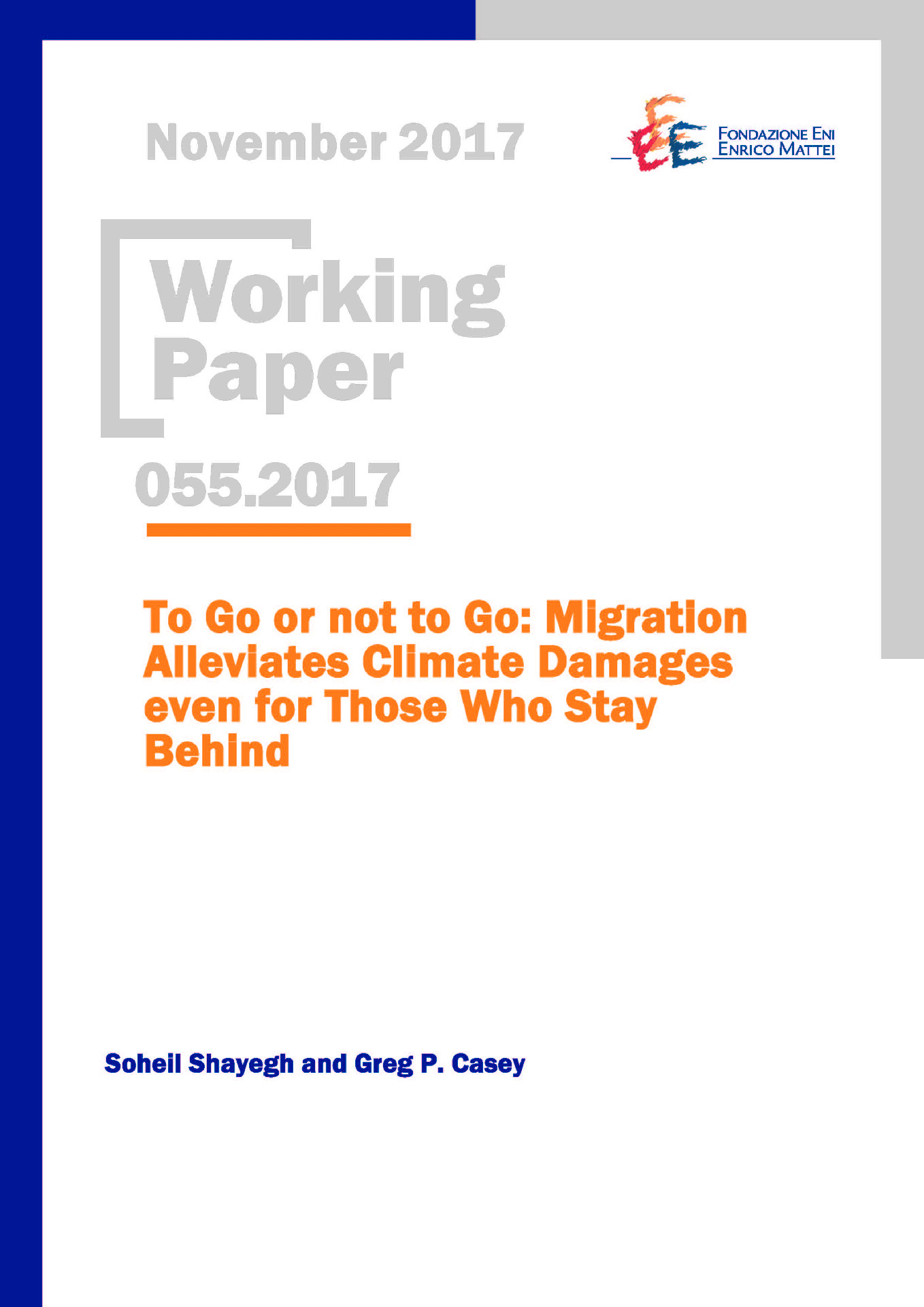To Go or not to Go: Migration Alleviates Climate Damages even for Those Who Stay Behind

14.11.2017
Soheil Shayegh (Fondazione Eni Enrico Mattei); Greg P. Casey (Institute at Brown for Environment and Society – Brown University)
F22
Migration, Climate Change, Fertility, Population, Wage, Quantity-quality Tradeoff
Mitigation, Innovation and Transformation Pathways
Massimo Tavoni
We examine the effect of climate change on fertility rates and human capital accumulation in developing countries, focusing on the instrumental role of migration. In particular, we investigate how climate-induced migration in developing countries will affect those who do not migrate. Holding all else constant, climate shocks raise the return to acquiring skills, because skilled individuals compared to unskilled ones have greater opportunity to migrate after the shock. In response to this change in incentives, parents choose to invest more in education and have less children, a process known as the ‘quantity-quality’ trade-off. These effects partially offset the damages of climate change, even for those who do not migrate.
***
Suggested citation: Shayegh, S., G. P. Casey, (2017), ‘To Go or not to Go: Migration Alleviates Climate Damages even for Those Who Stay Behind’, Nota di Lavoro 55.2017, Milano, Italy: Fondazione Eni Enrico Mattei
